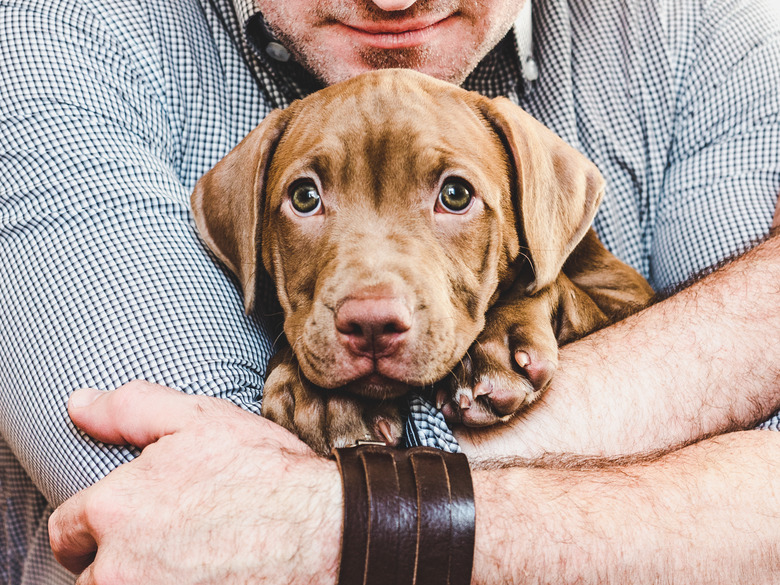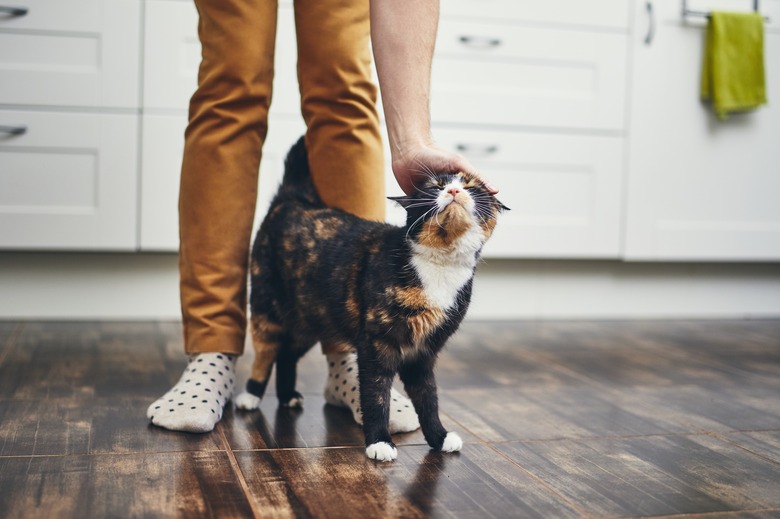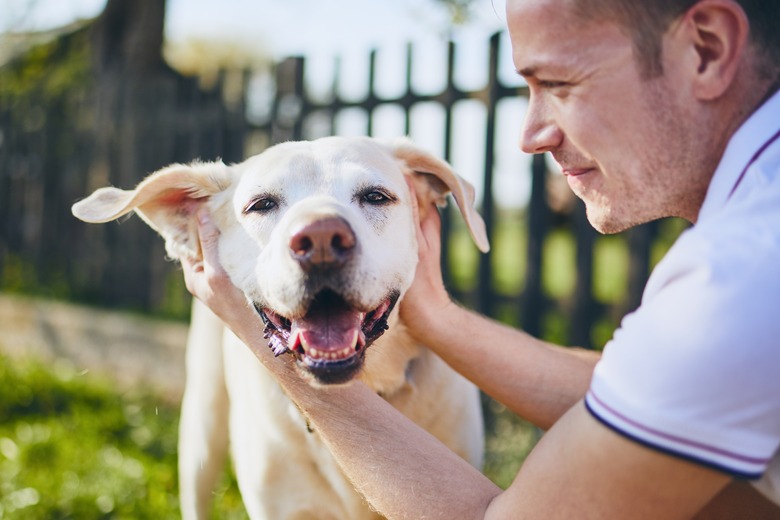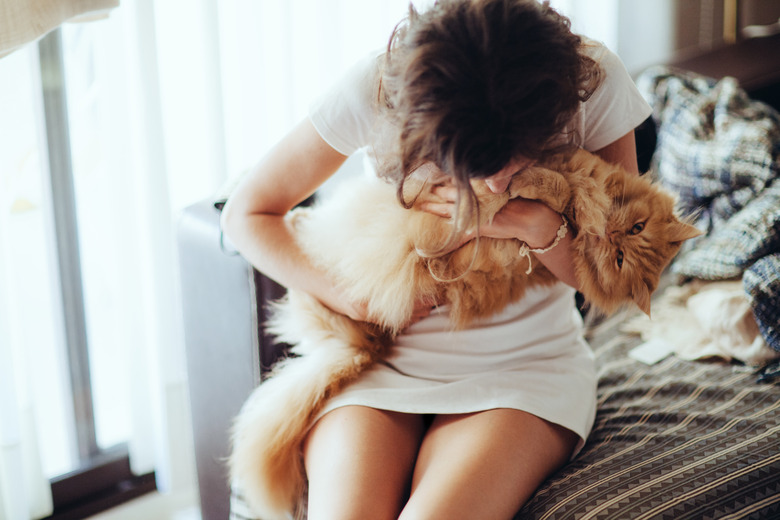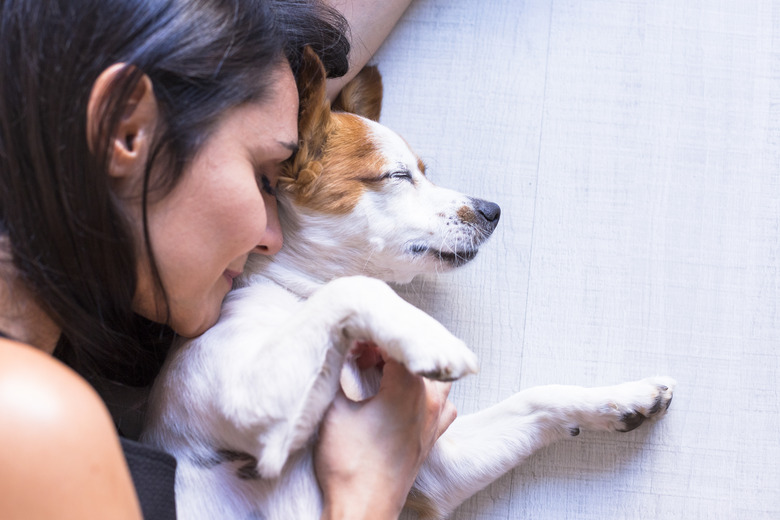Why Do People Keep Pets?
Humans have taken comfort in the company of an animal for tens of thousands of years. In times of extreme emotional duress, more and more people are seeking the unconditional love of a special furry someone — as of late March 2020, animal adoption and foster rates across the country are skyrocketing.
It makes sense because, simply put, we love pets and they make us happy. According to the 2019-2020 National Pet Owners Survey, about 67% of American families — which translates to roughly 85 million families — own a pet. In 2019, those families spent roughly $95.7 billion on food, medical care, and other goods and services for their pets.
Animal companions are a huge part of a pet owner's life — and vice versa, we'd like to think — but it may not have always been this way. Humans haven't always kept animals around for enjoyment — some experts say dogs were the first animals domesticated by humans around 33,000 years ago. Though that number has been the subject of much debate, it seems that dogs were fully entrenched in daily human life roughly 10,000 years ago.
Nowadays, dogs mainly provide snuggles, snoot boops, and Instagram content to their human counterparts. We don't really know the deal with cat domestication, but some scientists think kitties domesticated themselves because it was easier to get food that way. How devilishly on-brand of them.
The 30,000 year-old question is: what happened? Why do we keep these expensive, ever-shedding miscreants around? Experts have a few ideas and a lot more questions, but in short — it's complicated.
Pets and people throughout history
Pets and people throughout history
It's almost impossible to pinpoint the moment humans and animals decided to take their professional relationship to something a little, well, friendlier. When did dogs, for example, stop being used for guarding the household and transition to a comfier role as lap protector?
Some archaeologists believe humans and animals may have always been around each other for work and companionship, or rather, that there has never been a distinction between the two.
"In my view, there is no reason to believe that companionship was ever excluded from humans' relationships with animals," public archaeology consultant Dr. Kate Ellenberger told Cuteness. "For a long time, archaeologists thought about animals as tools and food for humans in the past, but recently the complex relationships between people and animals have become a focus of research, and that has illuminated even more ways animals have always been entangled in humans' lives."
Ellenberger said a modern US farmer or breeder exemplifies this complex relationship. Sure, one party — the farmer — professionally depends on their animals to make a living, but they also tend to have a strong emotional bond to their animals. The lives of these two very different species become inextricably bound.
"The simplest way of putting it is: people are social animals, so the context for companionship with other animals is literally all the contexts," Ellenberger said.
There's still some ambiguity around just how useful certain animals really were before becoming our pets. Cats, for example, have traditionally been lauded for their mousing skills. But it turns out they might not deserve all the credit — in fact, that might not be why humans kept them around.
"Maybe for dogs and people, it started off as a much more utilitarian relationship where dogs were able to guard things and help with hunting, then maybe the love came later," Mikel Delgado, a cat researcher at the UC Davis School of Veterinary Medicine, told Cuteness. "Cats are much less utilitarian for humans. People think they became pets because they were so great with rodent control, but there's a lot of evidence that that wasn't very useful to humans at the time, because other animals like weasels and dogs were great ratters as well."
Why do we love pets?
Why do we love pets?
It's hard to disentangle the long history of humans and animals, but one thing's for sure: there are a number of benefits animals provide to people — and vice versa. Some studies suggest dog owners live longer than non-owners because they exercise more and have better heart health, perhaps due to walking their dogs frequently.
"People no doubt keep pets for a variety of reasons," New York-based animal behaviorist Frania Shelley-Grielen told Cuteness. "Some are how those pets might benefit them whether it be through companionship, protection, to satisfy a curiosity or something else. And other reasons are for how they might benefit the pet through care taking, training or companionship. No matter the reason, the pet's welfare and how that animal perceives their world including if their needs are being met should factor into each."
There's no neatly scientific way of saying this: part of why we keep pets is probably because they're cute — and there's nothing we can do about it. Our brains are hardwired to want to snuggle them.
"When people see [pets'] cute faces, it stimulates caretaking behavior," Delgado said. "They remind us of babies, and so there's this drive to take care of something that is small, cute, maybe cries and needs help."
Truthfully, there is a resemblance. Think of puppy pictures: what stands out? Big eyes, a softness, and of course, tininess. The term "fur baby" is actually a pretty good descriptor of how people see their animals.
"There's definitely a lot of research suggesting that pets evoke this caretaking behavior, and so we get rewarded for caring for them," Delgado said. That reward comes in the form of dopamine, oxytocin, and serotonin, also known as the "happy hormones," which may be released in our brains when we pet an animal.
Pets' companionship undoubtedly helps our mental health. In a survey from the Human Animal Bond Research Institute, 74% of pet owners said owning a pet had improved their mental health, and 75% said they had seen an improvement in a friend or family member's mental health as a result of pet ownership.
Amid social distancing efforts due to the coronavirus, this companionship is more critical than ever. That's partially why it's so exciting to see the spike in animal adoption and fostering during the pandemic.
"The recent explosion of fostering and adopting is fantastic because there's also a lot of evidence that pets provide security and companionship that, for people who live alone and can't hang out with their friends, might really need," Delgado said.
What we can do for our pets
What we can do for our pets
We know pets make our lives better, but it's important to make sure we're doing the same for them. Pet owners can do this by learning how to "speak" their pet's language, as well as monitoring their diet and behavior.
"Our pets 'talk' to us all the time," Shelley-Grielen said. "For instance, cats have highly mobile ears that serve a lot of purposes including communication — if a cat's ears are flattened "airplane ears," that cat is probably stressed and we need to stop doing whatever it is we are doing or that is happening in the environment to cause that."
Maybe the main reason we keep pets is because they make our lives a little more whole. Making a pet's life better is one of the most rewarding feelings. The more we can provide for our furry companions, the more fulfilling we make their lives and ours.
